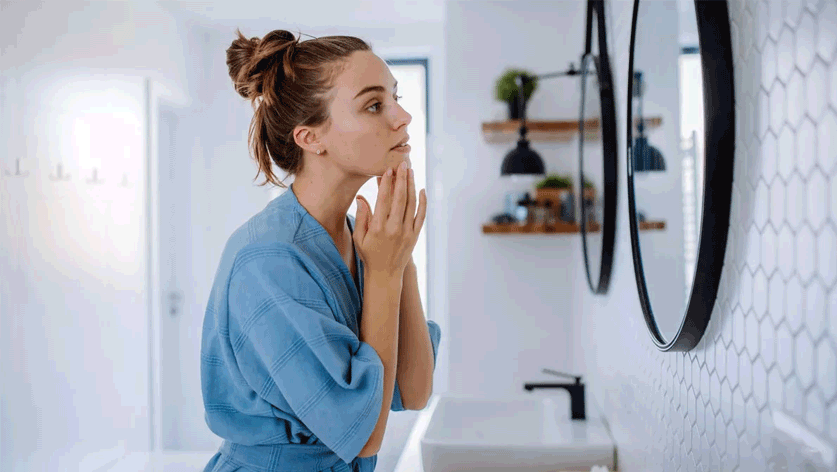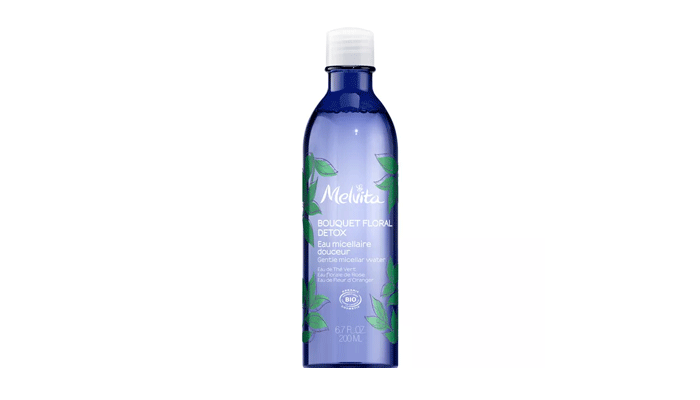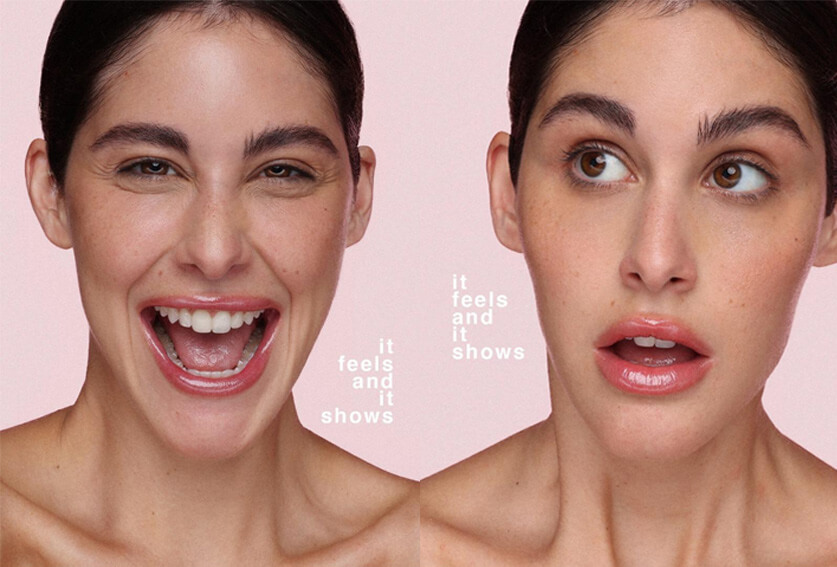BEAUTY
Should You Rinse After Using Micellar Water?
Justine Feutry - Madame Figaro
22-April-2024

Establishing itself as a make-up removal essential, micellar water has quickly become the daily ally of many women. Its gentleness and effectiveness make it a favorite product for all those who are in a hurry. Especially since many micellar water brands display the no-rinse label, a strong argument for those who are usually tempted to go to bed without even removing makeup. But is this really a good idea?
Before we delve into details, we suggest you check out Bella Hadid's Viral Wellness Ritual Sparks Internet Debate on our website.
When the first versions of micellar water came out, their marketing argument was really based on this idea of rapid makeup removal. “Micellar water was invented to simplify women’s lives. With the promise of only taking around ten seconds to clean your face before going to bed. It was particularly perfect for French women who had the reputation of not removing makeup in the 1990s. But this idea of a quick gesture remained well anchored,” explains Didier Thevenin, director of international training for Melvita.
To answer the question of the need to rinse or not, it is important to understand the composition of this essential product. “The latter are surfactants which are less present than in a classic cleanser. They come to collect impurities by wrapping themselves around them.” But does that mean we can avoid rinsing? "Well no. Because of course, the impurities are removed but if you don't rinse, half of them will remain on the skin. When you clean your face, you remove traces of makeup, pollution and even night secretions, if you do it in the morning when you wake up. But we still leave something behind. It’s a question of logic: when you wash your body or your hair, you rinse!” For the beauty expert, you have to ask yourself if you want to leave even slightest traces of surfactants. Moreover, Didier also warns of the fact that not all micellar waters contain the same number of micelles. His tip for knowing if it contains a lot? “You have to shake it and if it foams a lot, it means there is a lot of it.” And therefore, there is as much risk that more will remain on the skin after the cotton has been applied.

A minimal immediate risk but be careful in the long term
But are there any risks in not carrying out this second step to remove the micelles?
“It’s minimal. The skin will not peel or show pimples and wrinkles. There is no great danger. But it can become more reactive afterwards”. So, for those who exceptionally skip this step when returning from the evening, do not panic.
For Didier Thevenin, cleansing remains an essential step, particularly “in the way in which we remove everything we have put on our face, including makeup remover or cleanser. What's the point of taking off your makeup if you leave something else on?”
He also reminds us that we must anticipate the future. For him, the more we take care of it now, the less we will have to do later. “It is wrong to think to of a miracle product that will boost collagen for example, if we do not start our skin routine with the minimum to have a clear base. It’s a deal that every woman must make with her skin: do I help her go all the way or not?”
To properly optimize this major step in your daily beauty routine, rinse with water. “But the risk is that if the latter turns out to be particularly hard, we may feel tightness.” The Melvita brand director then recommends either applying a moisturizing cream immediately afterwards to counter this inconvenience, or using filtered or thermal water. Third option: use floral water. “We spray or soak it on a cotton pad, preferably reusable because in addition to being more ecological, it turns out to be softer.” The advantage also being that these floral waters provide a cosmetic effect, certainly less than a cream, but still interesting, a bit like a tonic which will neutralize the drying effects of limestone. “Orange blossom, for example, has a soothing side and will therefore be perfect for sensitive skin. The rose will bring tone and we can then spray it all over the face before wiping with a cotton pad.”
For those who want a more in-depth routine, the second step of double cleansing is also possible. “To remove all traces of makeup, pollution, etc., micellar water will help. On the other hand, it is a little more complicated for waterproof mascara for example. The double cleansing will really help to leave a clear space for the cream or serum that will follow.” The expert recommends as a first step a lipid-based product such as a gel-in-oil, an oil or a milk to remove makeup. Then secondly, any water-based product to clean deeply. “And in the morning, you can use micellar water which will be perfect for removing all the impurities that appear or are generated by the skin during the night.”
The expert concludes that micellar water can become a part of our routine but must be used correctly. “It’s a good product, which can make our lives easier but which still requires this rinsing step.”
Recommended

Guerlain unveils a holiday tale like no other
30-December-2025

Kylie Jenner’s Eyebrow Routine
15-December-2025

Perfumes for the Holiday’s Season
4-December-2025
Most read
-
1
How to Style Your UGGs Like a Celebrity
-
2
“MAJESTY”: Ziad Nakad’s Spring–Summer 2026 Haute Couture collection At Château de Vaux-le-Vicomte
-
3
Katy Perry’s Glowing 4000 Feather Coat at Joy Awards 2026
-
4
Hiba El-Khatib Badreddine Opens 2026 with a Groundbreaking Exhibition at Rebirth Beirut
-
5
The Beckhams, a Perfect Family in Photos





